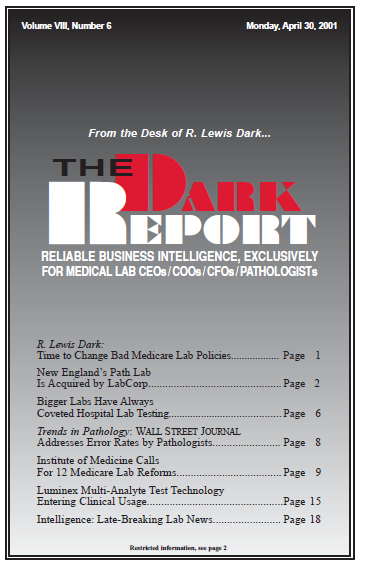CEO SUMMARY: Since 1987, the clinical lab industry has endured almost non-stop cuts in the absolute level of Medicare reimbursement for lab testing. But the time may be ripe for laboratories to work together to effect far-reaching reforms to Medicare laboratory payment policies. Just as the Institute of Medicine issued its 12 recommendations for reforming …
Institute of Medicine Calls For 12 Medicare Lab Reforms Read More »
To access this post, you must purchase The Dark Report.


